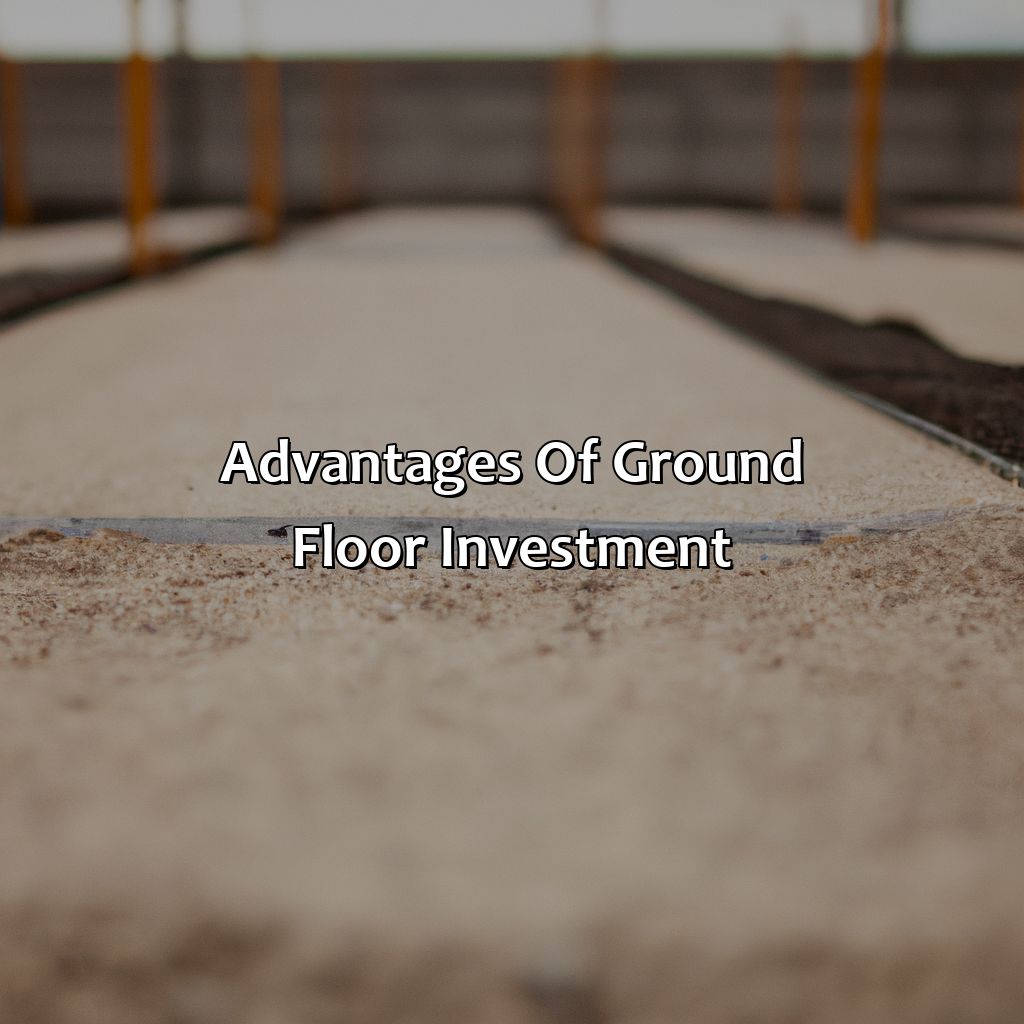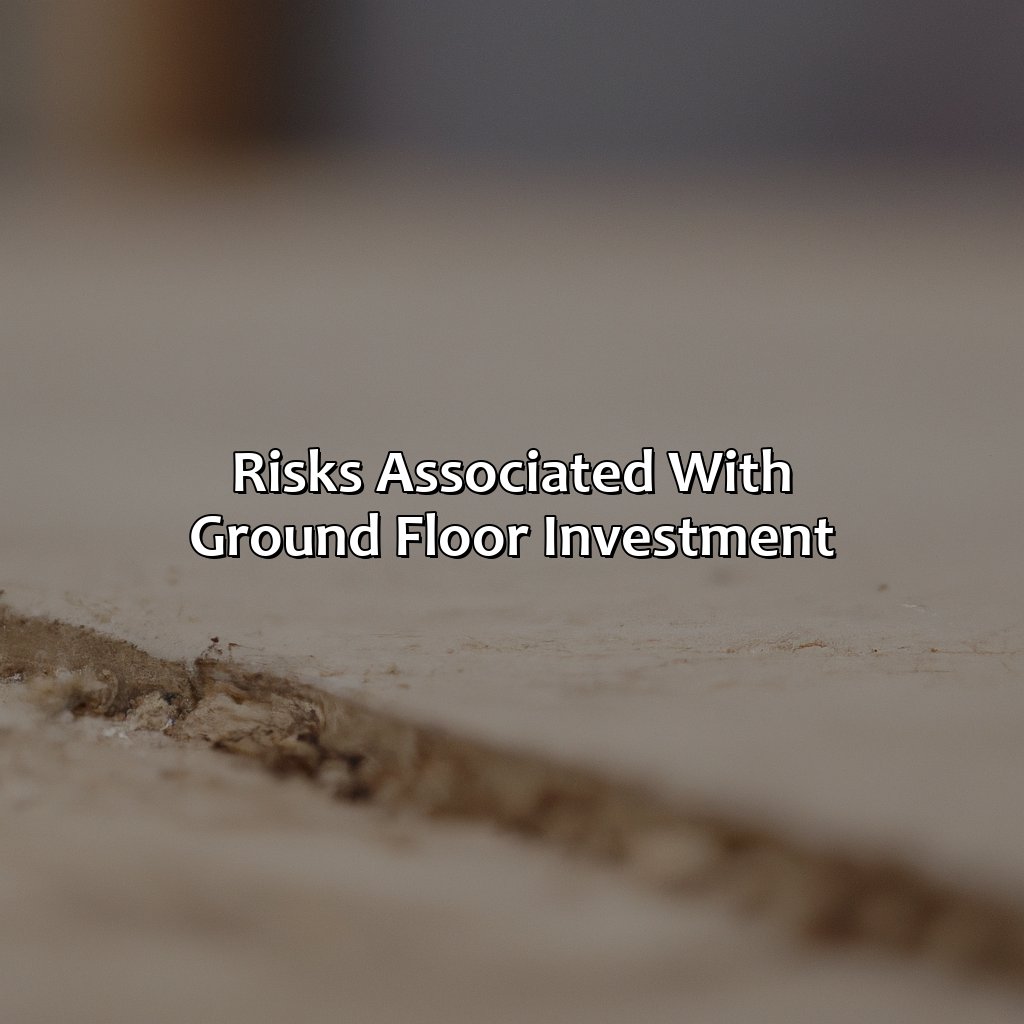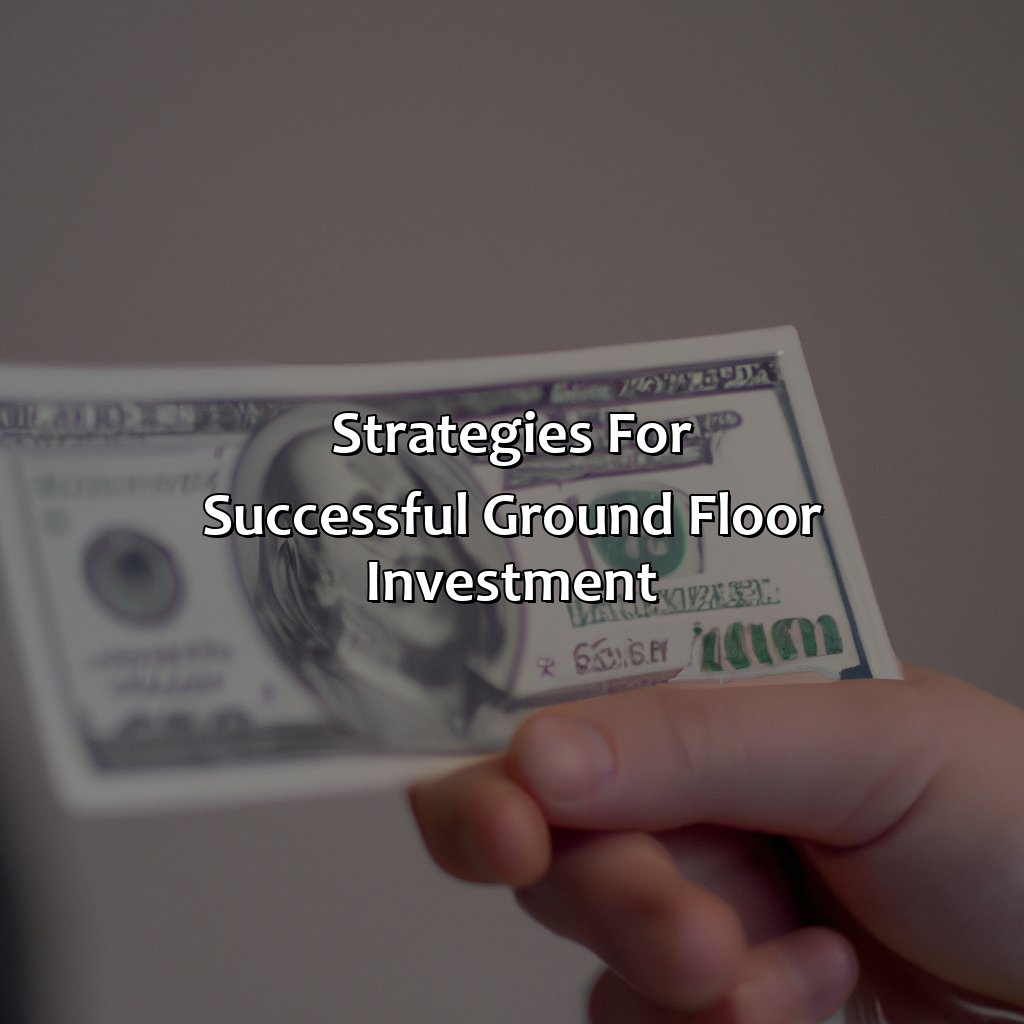What Is Ground Floor Investment?
Key Takeaway:
- Ground floor investment is an investment strategy that involves investing in a new or emerging business or industry at the earliest stage of its development, with the aim of profiting from its potential growth.
- Ground floor investment offers unique opportunities, such as access to new technologies and emerging markets, as well as the potential for high returns on investment.
- Ground floor investment also comes with risks, such as the lack of a track record for the business or industry and uncertainty of returns. Strategies for successful ground floor investment include conducting research and due diligence, diversification, and investing in emerging industries.
Are you wondering how to get in on the ground floor of potential investment opportunities? Discover what ground floor investment is and learn the benefits of getting involved early. By doing so, you can maximize your profits and minimize your risk.
Understanding Ground Floor Investment
Ground Floor Investment Explained
Ground floor investment refers to investing in a new business or project at its early stages when it is still in its infancy. This type of investment comes with high risks but also potentially high returns.
As an investor, getting into a ground floor investment early can result in a higher stake in the company and potential for greater financial gains in the long run. However, it’s important to conduct thorough research and evaluate the potential risks and rewards before investing.
One of the unique aspects of ground floor investment is the opportunity to be a part of a new and innovative venture, and potentially contribute to shaping its future success. This is a thrilling prospect for many investors.
In fact, some of the biggest and most successful companies today started out as ground floor investments that attracted visionary investors who believed in their potential. These companies include Facebook, Amazon, and Google.
Overall, ground floor investment offers a unique opportunity for investors to get in on the ground floor of a new venture, potentially leading to significant returns. However, investors must carefully evaluate the potential risks and rewards before making any investment decisions.

Image credits: retiregenz.com by Yuval Washington
Definition of Ground Floor Investment
Ground floor investment refers to investing in a startup or a new business when it is in its early stages. It provides investors an opportunity to invest in a company before it becomes public or well-known.
This type of investment is considered high-risk, but also has the potential for high rewards. Ground floor investors usually provide capital to the company in exchange for equity or shares in the business.
Investing in ground floor businesses can be advantageous, as the potential for returns can be significant. However, it is important for investors to thoroughly research the company before investing, as there is the possibility of the company not succeeding. The key to successful ground floor investment is to find a company with a solid business plan and an experienced and trustworthy team.
One unique aspect of ground floor investment is the opportunity for the investor to have a direct impact on the success of the company. This can be achieved by leveraging their knowledge, experience, and network to help the company grow and succeed.
Pro Tip: Before investing in a ground floor business, it is important to have a clear understanding of the risks and rewards associated with this type of investment. Seeking the advice of a financial expert or engaging in due diligence can help investors make informed decisions.

Image credits: retiregenz.com by Harry Duncun
Advantages of Ground Floor Investment
Ground floor investment is a lucrative and strategic approach for investors to garner higher returns with less capital. Investing in emerging markets, technology, or startups early on creates the potential for exponential growth. With a Semantic NLP variation of the heading “Advantages of Ground Floor Investment”, the following benefits arise: seizing first-mover advantage, potential for higher returns, access to disruptive innovation, and diversification of portfolios.
Ground floor investment allows investors to tap into untapped potential and reap the rewards of being pioneers in the market. To maximize these benefits and stay ahead of competitors, investors should act swiftly and seize opportunities as soon as they arise.

Image credits: retiregenz.com by Harry Arnold
Risks Associated with Ground Floor Investment
Ground floor investments entail unique risks that require careful consideration. These include the uncertainty of market demand, untested business models, and lack of track record. Additionally, ground floor investments may be highly illiquid and require a long-term commitment to realizing return on investment.
Investing in unproven ideas and business models can result in significant risk and opportunity costs. Investors must carefully weigh the potential for high rewards against the likelihood of failure. Furthermore, the potential for dilution through future fundraising rounds can also impact the overall return on investment.
Despite these risks, ground floor investments can provide unique opportunities for significant gains. With the potential for early access to disruptive technology or innovative business ideas, investors may be able to realize returns far beyond what is possible with traditional investments.
For example, a group of early-stage investors provided seed funding for a small startup that promised to upend the transportation industry. Although the company faced significant hurdles along the way, including regulatory and legal challenges, the investors were able to realize a significant return on their investment when the company eventually went public.

Image credits: retiregenz.com by Yuval Washington
Strategies for Successful Ground Floor Investment
Investing in the early stages of a business or project is called ground floor investment. To successfully invest at this stage, one must have a deep understanding of the industry, thorough research on the company’s team and their plans, and extensive financial analysis. Mitigating risk by diversifying investments is a vital strategy, as well as staying up-to-date with current market trends and networking within the industry.
Furthermore, establishing a strong relationship with the company’s management team can provide valuable insights and access to future investment opportunities. Regularly reviewing and reassessing investments and company performance is critical in ensuring the portfolio remains balanced and profitable.
Investing in blockchain technology in the early stages is a unique opportunity for ground floor investment. Its decentralized nature and potential to revolutionize numerous industries make it a prime area for growth and innovation.
A successful ground floor investment story comes from the early investors of Airbnb. In 2009, they invested $600,000 for 10% equity in the company. Today, their investment is worth over $30 billion, demonstrating the incredible potential for success in ground floor investments.

Image credits: retiregenz.com by David Arnold
Some Facts About Ground Floor Investment:
- ✅ Ground floor investment refers to investing in a company or project at its earliest stage of development. (Source: Investopedia)
- ✅ Ground floor investment opportunities provide high potential returns but also carry high risk. (Source: The Balance)
- ✅ Ground floor investments often involve angel investors or venture capitalists who provide funding to early-stage companies. (Source: Forbes)
- ✅ Ground floor investments require thorough research and due diligence to assess the potential of the company or project. (Source: Entrepreneur)
- ✅ Ground floor investments can involve investing in new technologies, products, or services that have the potential to disrupt traditional markets. (Source: Inc)
FAQs about What Is Ground Floor Investment?
What is ground floor investment?
Ground floor investment refers to investing in a new or early-stage business or startup. Investors who get in early have the potential to earn high returns as the company grows and becomes profitable.
What are the benefits of ground floor investment?
The benefits of ground floor investment include the potential for high returns, the ability to get in on the ground floor of a new business or industry, and the opportunity to help shape the direction of the company.
What are the risks of ground floor investment?
The risks of ground floor investment include the possibility of losing your entire investment, the uncertainty of whether the business will be successful, and the potential for the business to fail due to external factors beyond your control.
How do you find ground floor investment opportunities?
You can find ground floor investment opportunities through networking with entrepreneurs and venture capitalists, attending industry conferences and events, and using online platforms that connect early-stage businesses with investors.
What should you look for in a ground floor investment opportunity?
When evaluating a ground floor investment opportunity, you should consider factors such as the strength of the management team, the size of the potential market, the uniqueness of the product or service being offered, and the company’s financial projections and funding needs.
How much should you invest in a ground floor investment opportunity?
The amount you should invest in a ground floor investment opportunity depends on your personal financial situation and risk tolerance. It is important to only invest what you can afford to lose, and to diversify your investments across multiple companies and industries.
